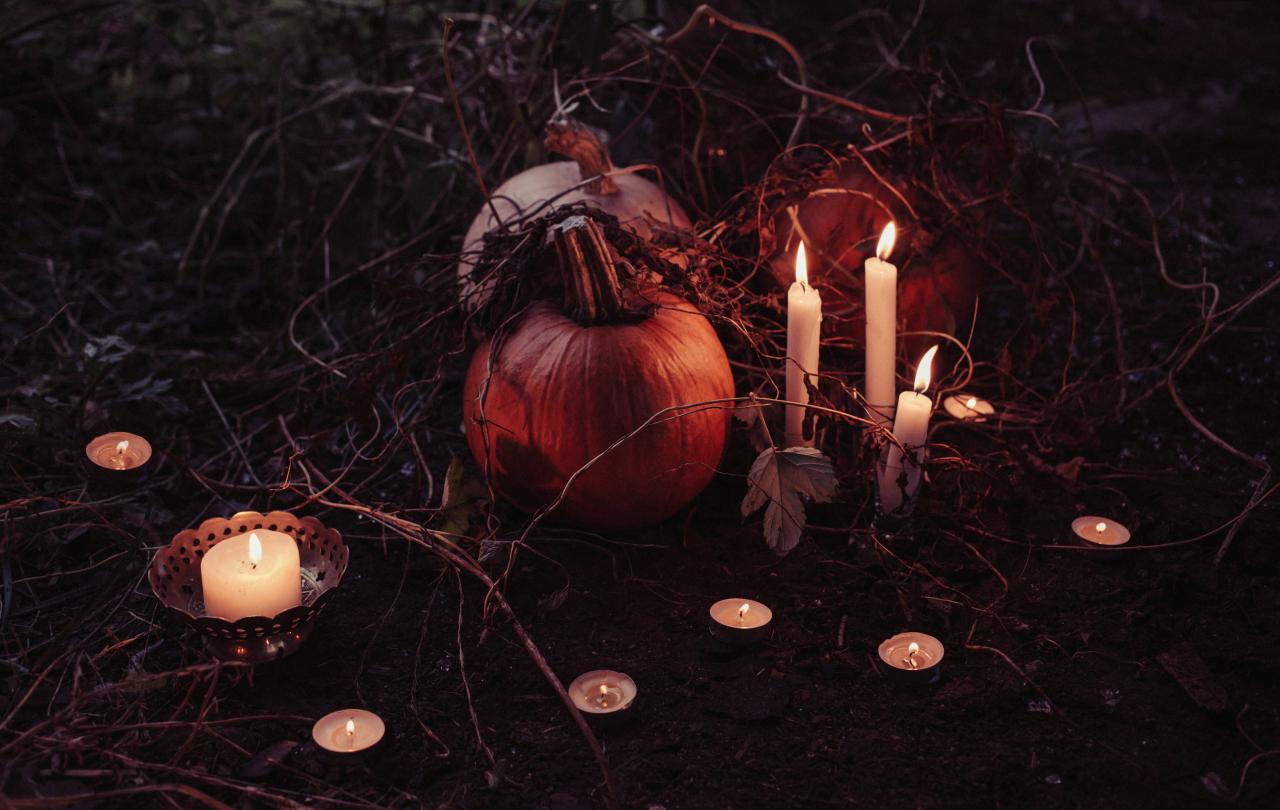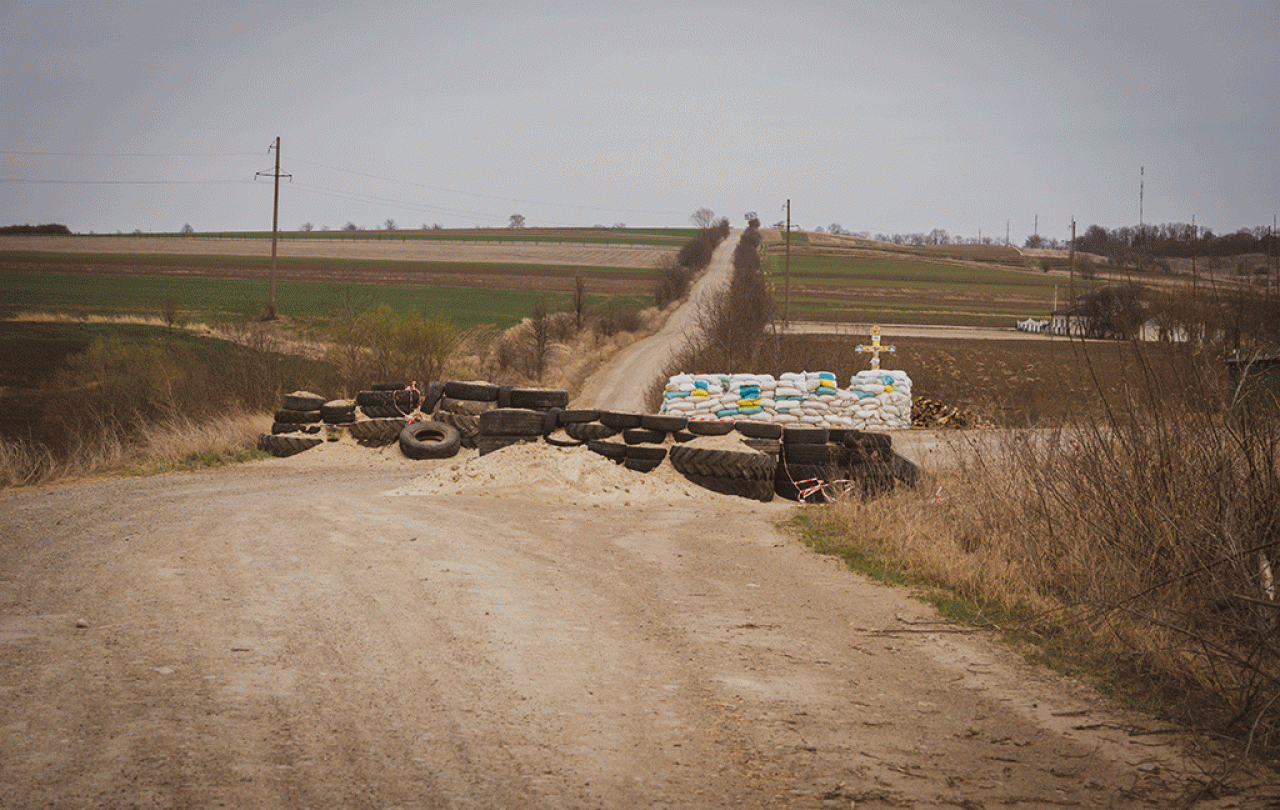
As summer withers into autumn, these days you can’t escape the impression that Halloween is taking over.
Like Christmas or Mother’s Day, the run-in to Halloween seems to project further backwards from the actual date of its celebration - 31st October - with each passing year.
I am especially conscious of this as a parent. Weeks before the actual “event”, the kids start coming home from school with all manner of Halloween arts and craft detritus, poems, storybooks and spelling tests (no pun intended). Costumes are dug out for special Halloween dress-up days. The kitchen is covered in pumpkin pulp and paint – which is fine. (I’m less keen on the vampire blood dripping off my eight-year-old’s chin.)
In the supermarkets and department stores, the black and orange decking appears. Cobwebs materialise in the shop windows with a speed and intensity which any arachnid would envy. Movie billboards on passing buses take a turn for the infernal; Netflix algorithms become decidedly witchy. Everywhere you look, your eye is met with devil horns and the baleful glare of demons.
No doubt commercially it’s a great money-spinner. But what does it say about the prevailing currents of our culture?
Our obsession with this holiday - or at least someone’s obsession with this holiday - apparently knows no end. But why?
No doubt commercially it’s a great money-spinner. But can we read anything more into this growing obsession with Halloween? What does it say about the prevailing currents of our culture?
In the British Isles, at least, the tradition of a celebration marking the end of the harvest season finds its origin in the ancient Celtic festival of Samhain (pronounced ‘Sow-in’). The Celts, who populated what is now Ireland, Great Britain, and parts of Northern France, celebrated their new year from sunset on October 31st to sunset on November 1st. (Would that ours were so neatly packaged.)
Samhain marked the end of harvest and the start of winter, a time when the days grew shorter and colder. It was viewed as the transition from the light, fertile half of the year to the dark, barren half. But more than this, Samhain was believed to be a time when the boundary between the physical world and the spirit world was thinnest, allowing spirits (both good and bad) to pass through. Thus, it was a time for honouring ancestors and the dead, who were thought to return to their homes seeking hospitality. This ‘thinning of the veil’ also meant the increased presence of otherworldly beings like faeries (or worse), which could cause harm if not appeased. Offerings of food and drink were left out to ensure peace with them, too.
Some of the ways in which the festival of Samhain were held will be familiar to us today: large communal bonfires were lit (long before Guy Fawkes appeared on the scene); feasts were held in honour of ancestors; fortune-telling and divination were considered especially effective at this time; some traditions involved donning disguises and costumes in order to ward off and confuse harmful spirits; small food offerings were left out to placate wandering spirits. Livestock were often slaughtered ahead of the coming winter.
With the slow but inexorable conversion and Christianisation of the peoples of Britain from the late Roman period of the third and fourth centuries on into the early medieval period, this pagan festival marking the transition in the year from light to darkness evolved. Like many aspects of a pre-existing pagan culture, the festival of Samhain, under the influence of the Christian faith, was not expunged but rather, in the church’s eyes anyway, redeemed. In other words, the paganism of the British Isles was not so much swept away as swallowed up, and then re-constituted into something more overtly Christian, but with pre-existing cultural undertones still there.
So, Samhain became All Hallows’ Day or All Saints’ Day, celebrated on November 1st, which honours all the saints, both known and unknown, who have attained heaven. The first recorded evidence of its celebration in the West was in Rome in the early seventh century. By the mid-eighth century, it had spread to most of the Western Christian tradition. It provided a kind of catch-all celebration for the sainted dead, marked by special readings and prayers, and often the lighting of candles at gravesites or in churches, honouring deceased loved ones and saints. In terms of teaching, All Hallows’ Day emphasises the Christian belief in the communion of saints – the spiritual union of the living and the dead in Christ. You can see, perhaps, the same “thinness” of the veil between their otherwise separate worlds marked there.
G.K. Chesterton used to argue that, paradoxically, the most pagan thing still in the world is the Christian church. He understood that in the West at least, all of paganism - the awe and mystery which pagans once held towards the natural world - has been rolled up and retained in the traditions and rituals of the church. The festival of Halloween, for a long time anyway, seemed a particularly obvious case in point.
However, there is no doubt that in more recent decades, with the general waning of Christian faith and advance of secularism - at least in our outward expressions of culture, if not necessarily the inner convictions of our hearts – the surface veneer of Christian faith has rather sloughed off this festival of Halloween. And what we are left with is something more overtly pagan, and certainly more sinister.
Could it be the apparently ceaseless proliferation of this ancient festival has something altogether more chilling to say about our culture?
In his book Heretics, Chesterton had already envisaged what we are now seeing in our culture a hundred years after he wrote it. He wasn’t too worried. “If we revive and pursue the pagan ideal of a simple and rational self-completion, we shall end where Paganism ended. I do not mean that we shall end in destruction. I mean that we shall end in Christianity." In other words, if society returns to pagan ideals, he was sure it will eventually lead back to Christianity because of the deep moral discoveries and spiritual truths that Christianity offers.
On the other hand, I am not so sure. Historically, what has once been a pagan culture that is rolled up into a Christian one does not revert to that same naïve, even “innocent” form of paganism when Christianity is discarded later on. Rather, the spiritual mood becomes post-Christian. Even Anti-Christian, re-creating a form of paganism as appropriated and adapted by the spirit of anti-Christ. That seems closer to the mark, especially when you notice the number of inverted crosses appearing on the doors of the more enthusiastic Halloween celebrants on the street.
So could it be the apparently ceaseless proliferation of this ancient festival has something altogether more chilling to say about our culture? In Jesus’ own words: “And this is the judgement of the world: the light has come into the world, and people loved the darkness rather than the light because their works were evil.”
Even if this might be nearer to the truth, the claim of Christ has always been one of hope: where there is death and darkness, so must follow resurrection and light. And at this time of year, it is perhaps to our profit to remember one of the most beautiful passages about light and darkness ever penned: “In him was life, and that life was the light of all mankind. The light shines in the darkness, and the darkness has not overcome it.”
Worth remembering, too, however scary we make our pumpkin, we are still moved to fill it with light.
So, let’s not be too gloomy.
After all, Christmas is coming.





